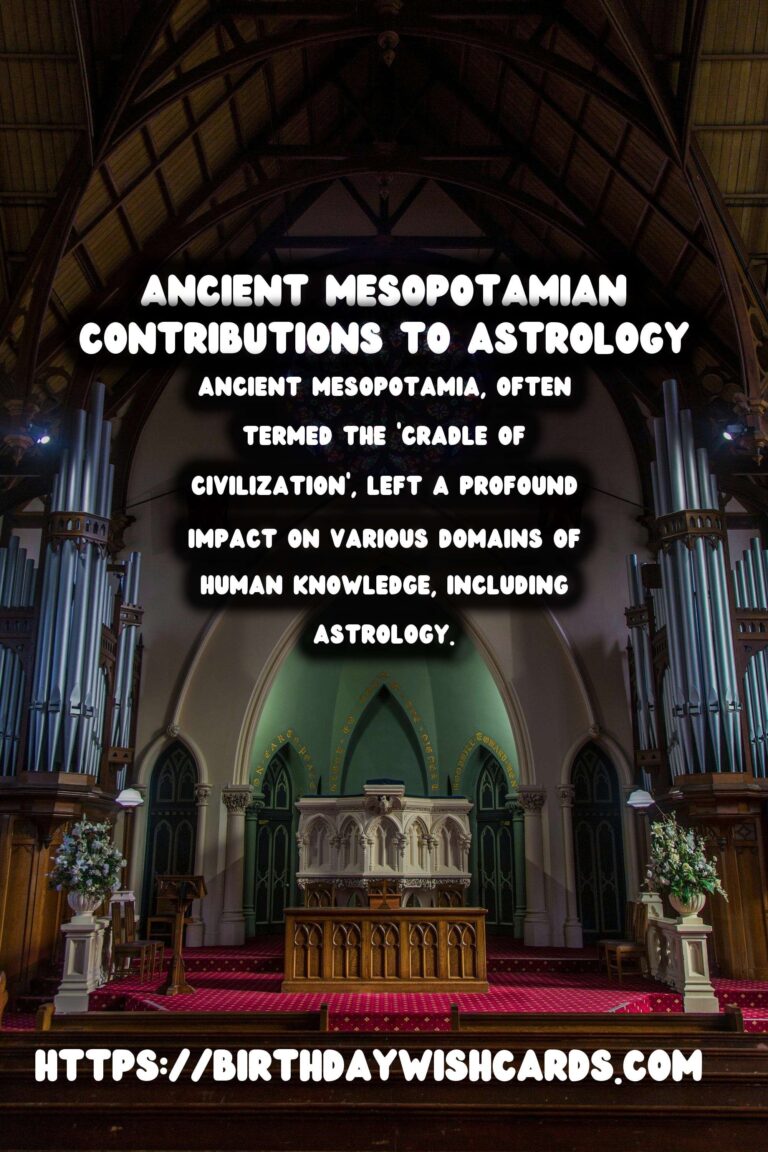
Ancient Mesopotamia, often termed the ‘Cradle of Civilization’, left a profound impact on various domains of human knowledge, including astrology. The Mesopotamian’s fascination with celestial bodies laid the groundwork for modern-day astrology, influencing subsequent cultures and their understanding of the stars.
The Historical Context of Mesopotamia
Located between the Tigris and Euphrates rivers, Mesopotamia was home to some of the first human civilizations, including the Sumerians, Akkadians, Babylonians, and Assyrians. These societies developed sophisticated systems of writing, mathematics, and astronomy, which played pivotal roles in their day-to-day lives.
Mesopotamian astronomers were among the first to systematically observe and record celestial events. Their ability to predict changes in the heavens was not just an academic endeavor; it had direct practical applications, including agriculture and timekeeping.
Astronomy as the Foundation of Astrology
The Mesopotamians meticulously charted the movements of the sun, moon, and planets, creating the basis of what we now consider astrology. They believed that celestial bodies directly influenced earthly events and human destinies. This belief system led to the establishment of astrological omens, where celestial phenomena were interpreted as messages from the gods.
Among their most notable contributions is the division of the sky into designated regions, which later evolved into the zodiac signs we use today. Each region was linked to specific deities and was believed to harbor distinct powers that could impact human lives.
Influence on Future Civilizations
The astrological practices developed in Mesopotamia did not remain confined to the region. Babylonian astrology, for example, greatly influenced the Greeks, who further refined and expanded the system. The Greek adaptation of Mesopotamian astrology laid the groundwork for the Hellenistic astrology that we recognize today.
The transmission of Mesopotamian astrological knowledge didn’t stop with the Greeks. Through the process of cultural diffusion, it spread to Persia, Rome, and beyond. As a result, elements of Mesopotamian astrology have become deeply embedded in the astrological traditions of various cultures worldwide.
The Mesopotamian Zodiac and Modern Astrology
Mesopotamians were instrumental in creating the concept of a zodiac — a celestial coordinate system that assigns significance to the positions of planets in relation to twelve specific constellations. The twelve signs of the zodiac used in Western astrology today can trace their roots back to these early astronomers.
Modern astrology owes much to Mesopotamian innovations, even regarding the tools and methods used to create astrological charts. The basic premises of linking human events to celestial movements originate from this ancient culture’s astrological insights.
Conclusion: A Timeless Influence
The legacy of ancient Mesopotamia in astrology is a testament to the enduring curiosity and intellect of human beings. Their pioneering work in observing and interpreting the stars has provided a lasting foundation for astrology, a field that continues to captivate people worldwide.
As we delve deeper into our understanding of astrology today, it’s essential to recognize and honor the contributions of ancient Mesopotamian culture, which served as one of the earliest intersections between the stars above and humans below.
Ancient Mesopotamia, often termed the ‘Cradle of Civilization’, left a profound impact on various domains of human knowledge, including astrology. The Mesopotamian’s fascination with celestial bodies laid the groundwork for modern-day astrology, influencing subsequent cultures and their understanding of the stars. 
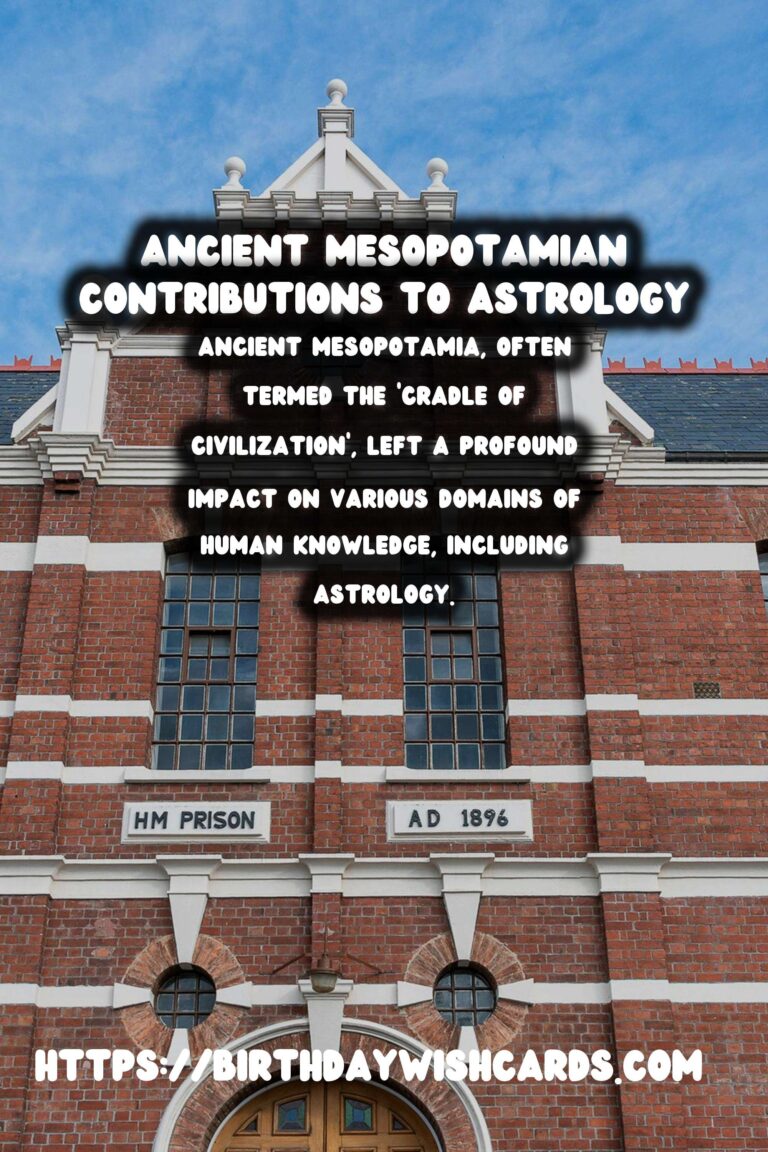
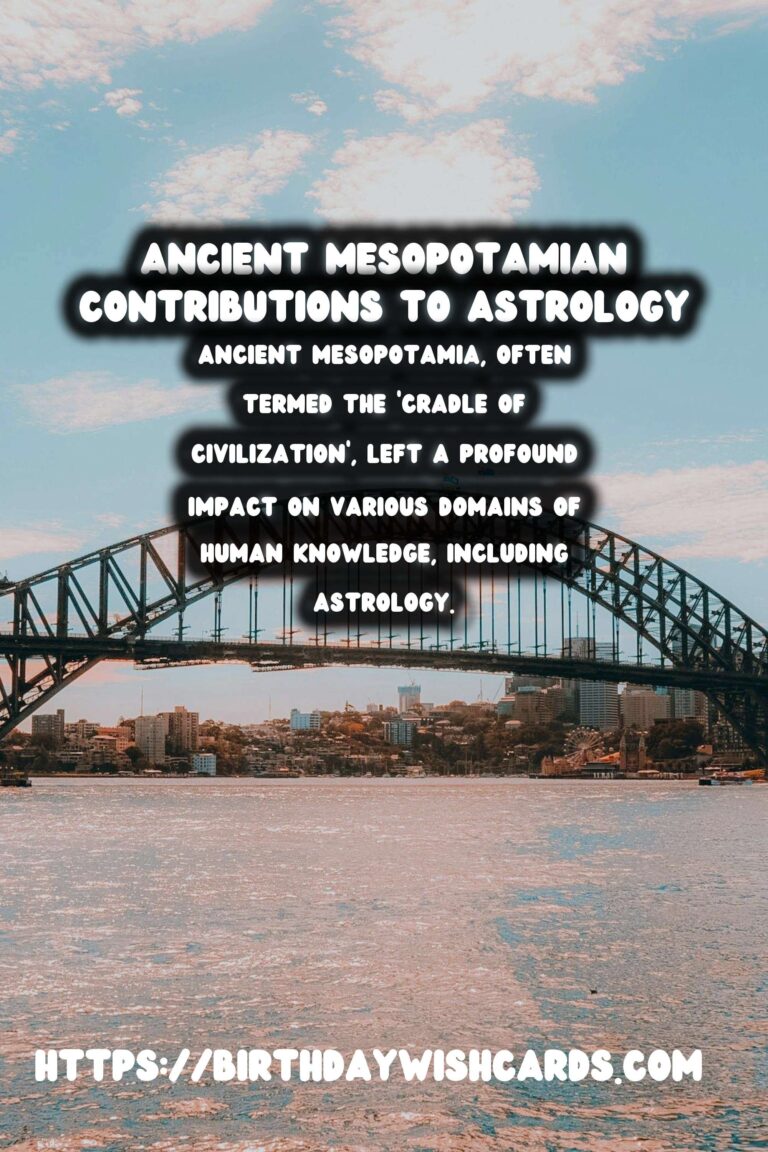
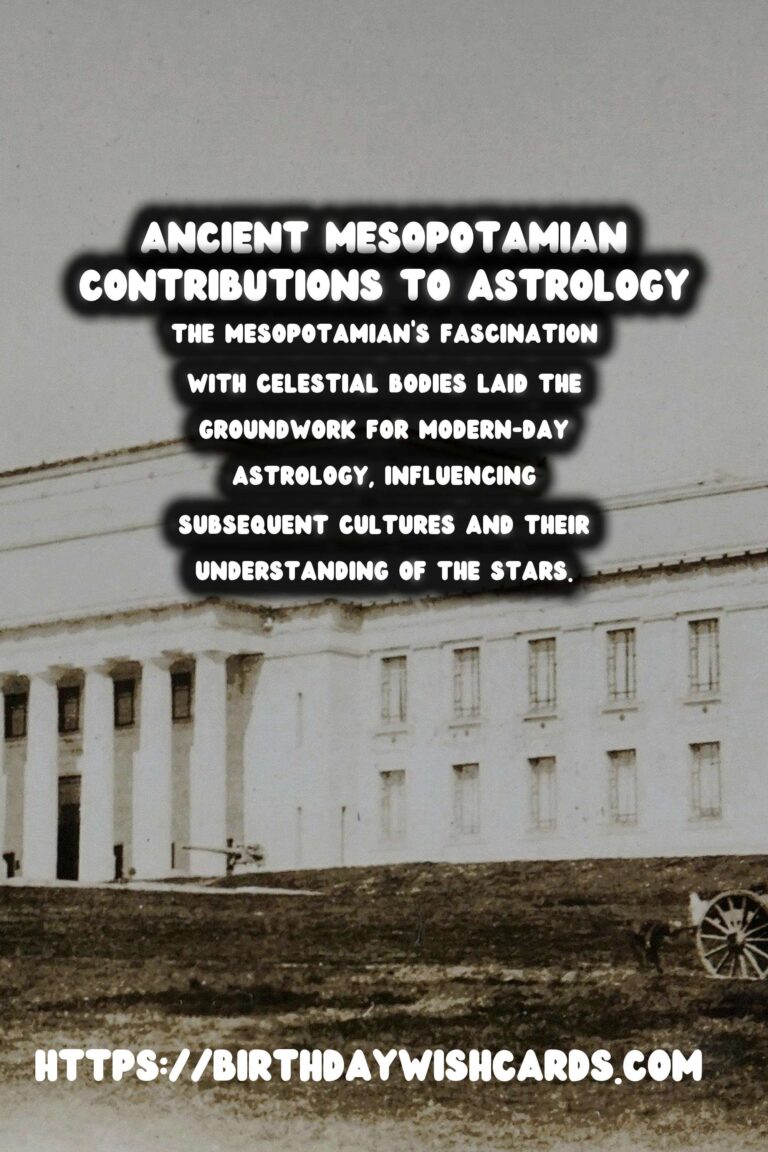
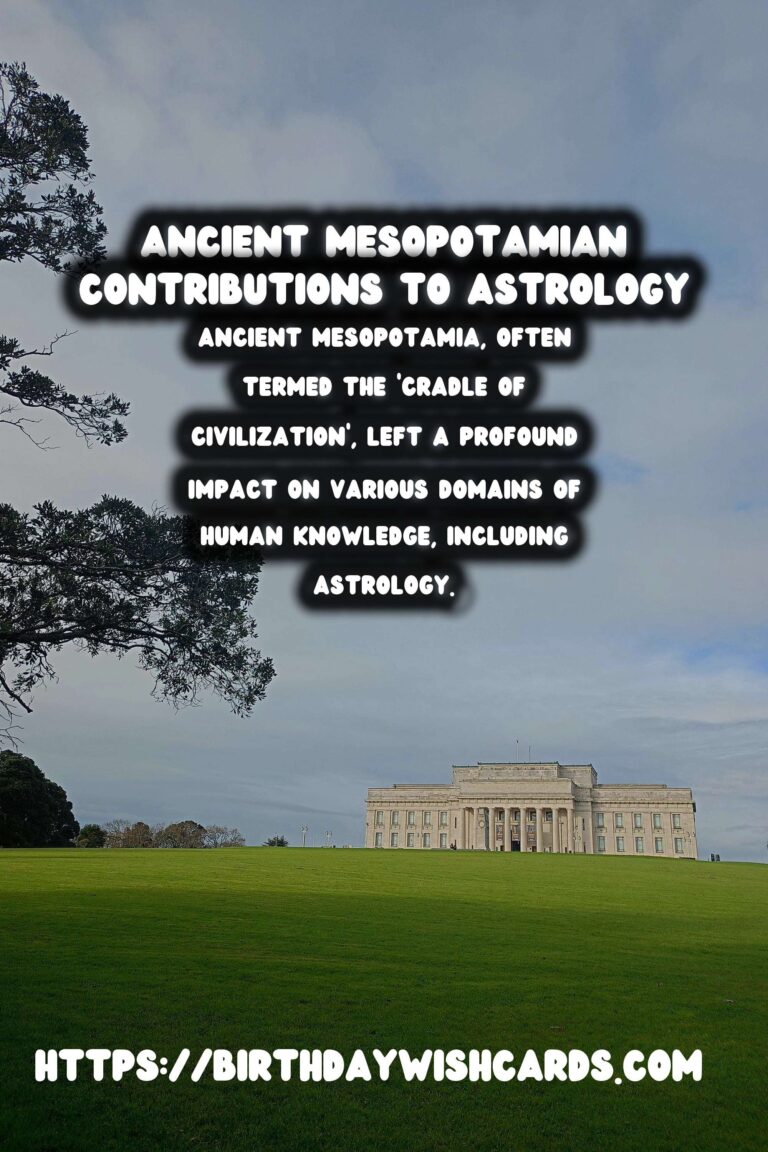
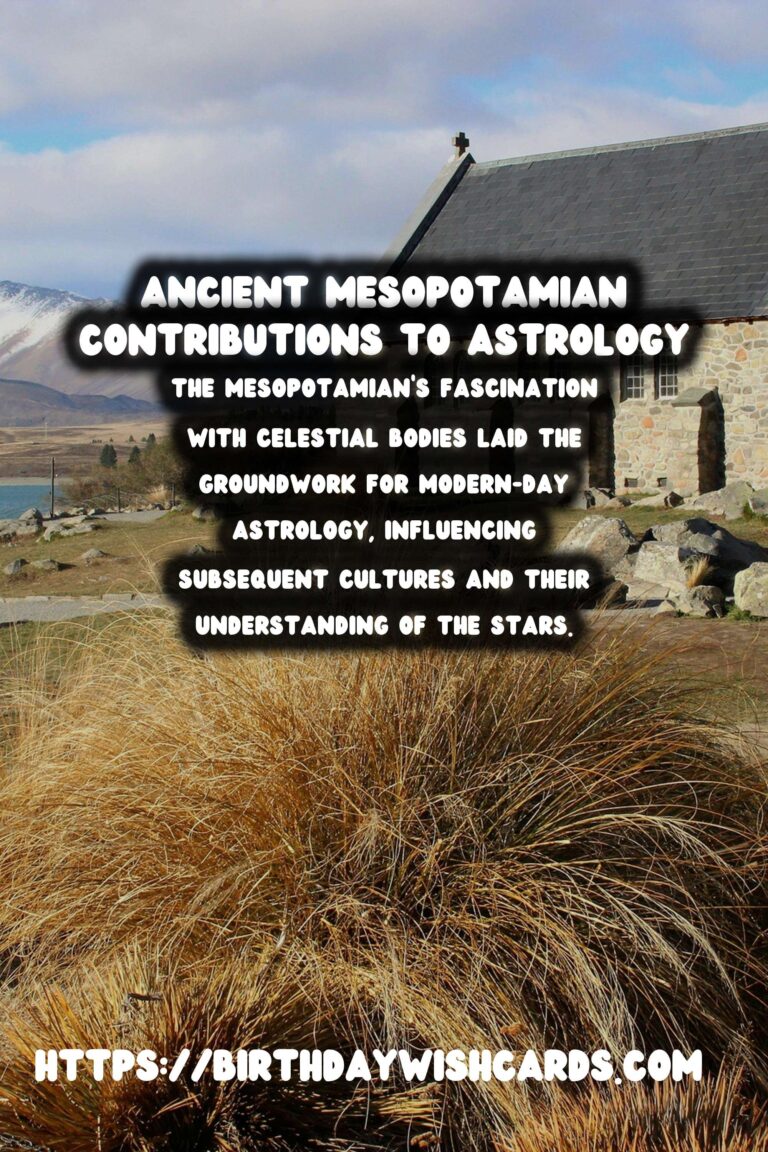
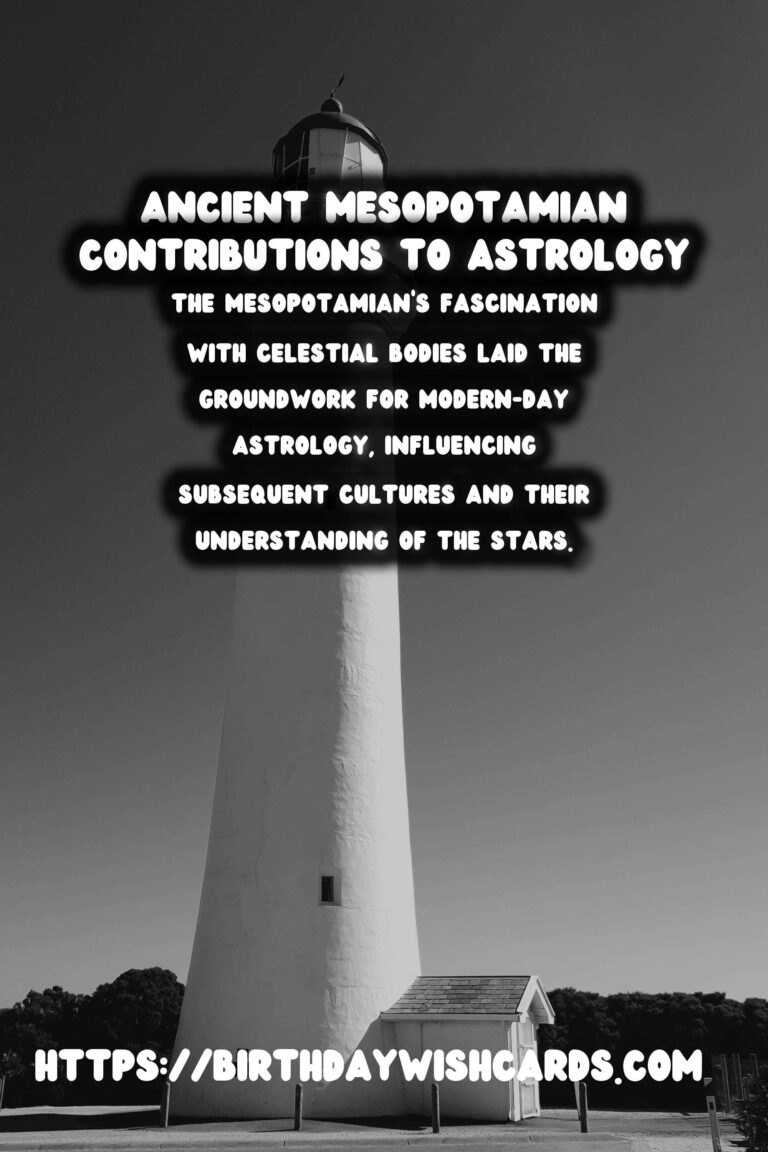
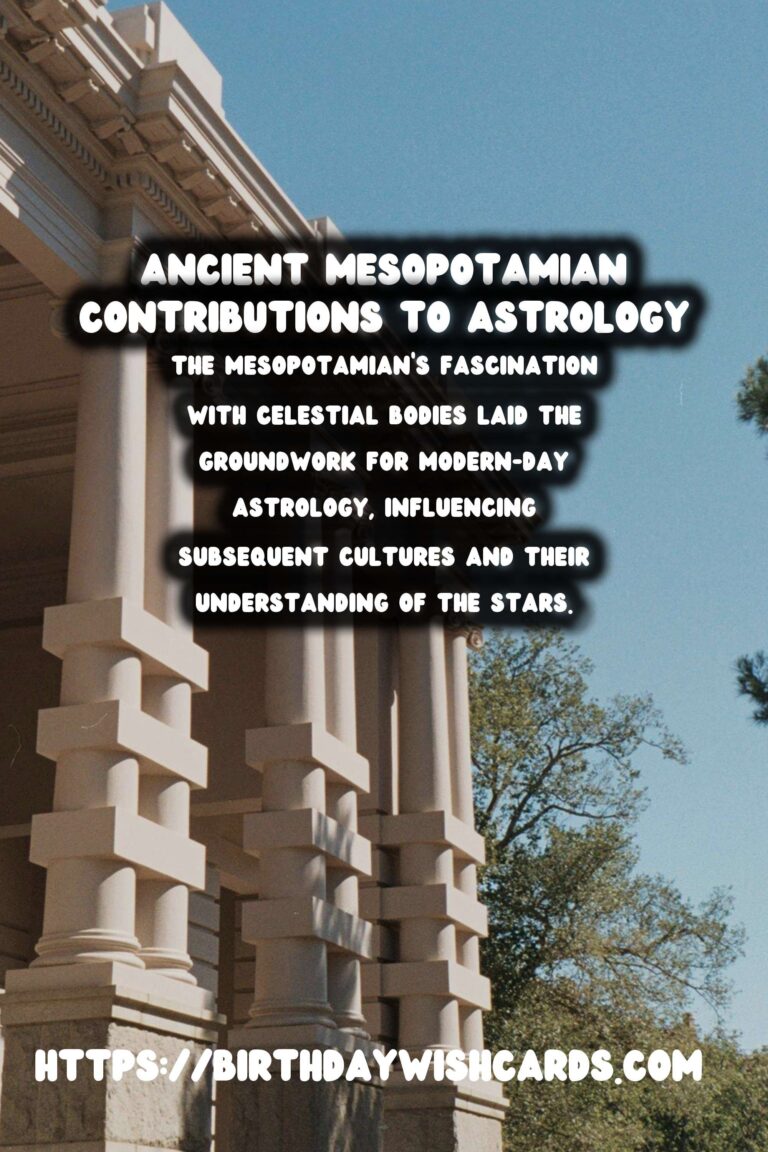
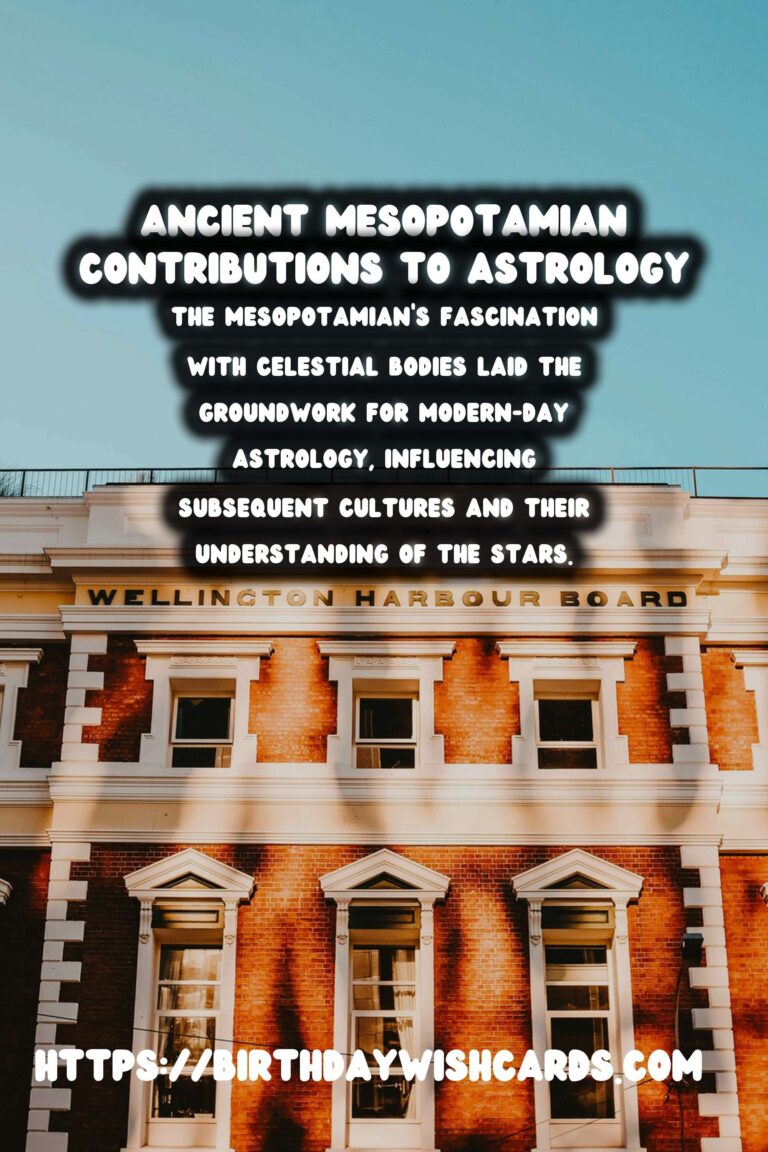
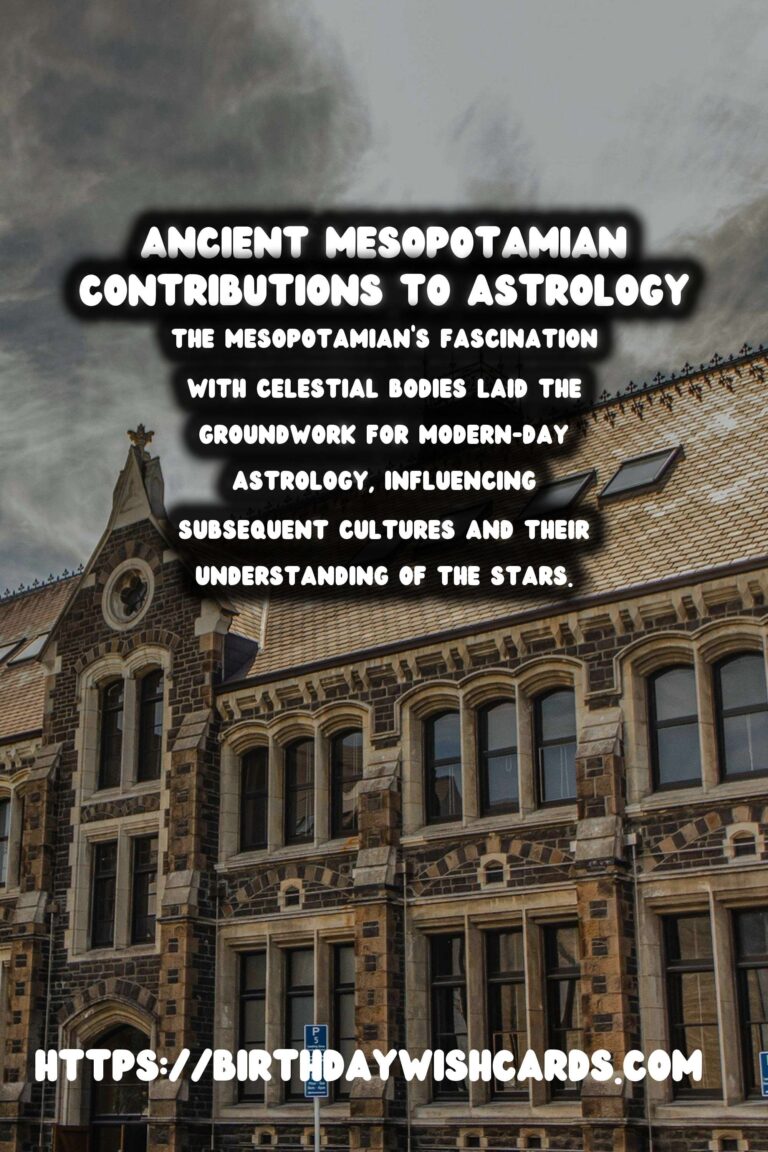
#Mesopotamia #Astrology




